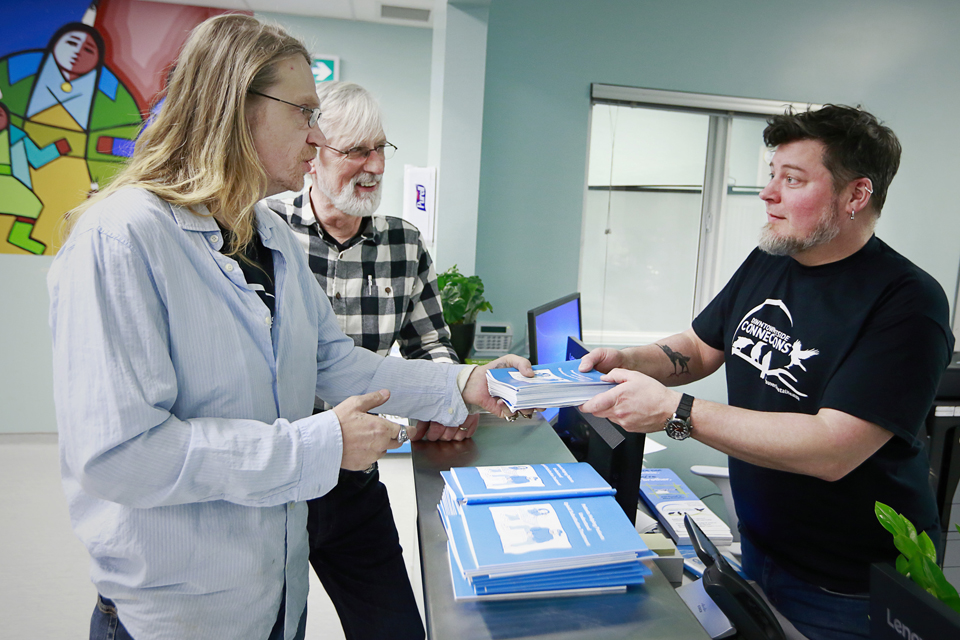CARBC brings together opioid substitution patients to help others
- Suzanne Ahearne

In BC alone, more than 16,700 people receive opioid substitution treatment (OST) as a way of reducing harms from illicit opioid dependence. Patients face stigma and multiple levels of bureaucracy in the medical system to access information and treatment.
To help navigate this, UVic’s Centre for Addictions Research (CARBC) produced a users’ guide to the world of prescription opioids (such as methadone and suboxone), treatment and recovery. The handbook “Patients Helping Patients Understand Opioid Substitution Treatment” was co-written by a group of OST patients, supported by funding from the Province of BC.
Written by patients, the 43-page booklet reflects their experiences and accurately reflects the current science and the medical system. Through CARBC’s work on health promotion related to substance use, they’ve learned that resilience—and thereby, health—is built through connections and relationships, as well as by having high self-expectations and by having opportunities to contribute to solutions in a meaningful way. CARBC Assistant Director (Knowledge Translation), Dan Reist, calls the handbook “an important tool in the face of BC’s overdose epidemic.”
“Too often patients are expected to be passive consumers of health care services,” says Reist. As a result, he explains, the services may be high quality from the perspective of the service providers, but they don’t meet the needs of the patients because the patient experience has not informed the design of the service. The need for this kind of handbook was expressed in consultations on OST organized by CARBC at the request of the BC Ministry of Health. “It’s about making patients partners in designing and delivering services,” says Reist.
"It's really important that we get this out from our point of view, how we see it, how it is to us, because that's how the guy who's going in to the clinic is going to see it," said Al Fowler, in a recent Canadian Press story. Fowler is president of the B.C. Association for People on Methadone, who has been in the program for seven years.
"Part of this booklet was to help people navigate that, to let them know that they have rights, because it's just another medication ... and we shouldn't be penalized for that."
Garth Mullins, harm reduction activist and one of the handbook co-authors, agrees. That’s one reason he wanted to be part of the Vancouver writing team. “Patients suffer through a Byzantine bureaucracy of medical jargon and advice from well-meaning experts who haven’t experienced this life,” he says. “The handbook tells people looking to get treatment for addiction the often ugly truth about their options as well as the potentially life-changing possibilities.”
“I’ve gone to so many memorials and funerals for those dead of overdose, who couldn’t get help and couldn’t get support. The medical system made them feel like outsiders. It alienated them. Too much is done in the name of helping drug users without giving any room to the actual voices of that experience. The handbook is just a start. One day those most affected by government and drug policy and legislation should have a hand in writing it,” says Mullins.
The electronic version (pdf) is available from the CARBC website and print copies are being distributed to methadone and other opioid-substitution dispensing pharmacies, social service agencies and authorized prescribers in Victoria, Vancouver and across BC.
CBC Radio in Vancouver and Victoria interviewed co-author Garth Mullins, one of which was included in this online story. A Canadian Press story appeared in Metro Vancouver, the Vancouver Sun, and other Postmedia papers and appeared on the Times Colonist’s Life section cover.
Photos
In this story
Keywords: Canadian Institute for Substance Use Research, drugs, addiction
People: Dan Reist











